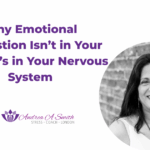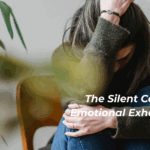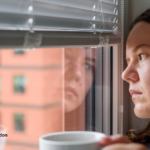It could be challenging to determine the differences between stress vs anxiety. That’s because of the signs which manifest in both cases and that the two conditions co-exist.
A typical set of symptoms including muscle tension, dizziness, sweating, and fast heartbeat are felt by persons who suffer from anxiety and stress. The signs for these two could be switched, resulting in you finding it difficult to cope.
The World Wide Web is also loaded with partial and often inconsistent data about stress vs anxiety. Depending on some online inexperienced critics say that there may be no correlation.
The Major Difference between Stress vs Anxiety
Stress is your body’s reaction to life’s daily challenges. It is grouped into two kinds which are known as bad and good stress. Good stress could carry a positive impact on the body and standpoint. On the other hand, bad stress is connected with possible long-term issues and can become an anxiety disorder.
However, how do you know if you have anxiety? Anxiety is triggered by stress combined with uneasiness, tension, and worry. It could cause long-term effects on your mental health, which could result in physical, emotional, and social damage.
Anxiety is a typical response to stress. It also can impact negatively and positively on the psychological and physical aspects of your body.
Here are the common stress symptoms:
- reactivity to frustrations and events
- dizziness
- muscle tension
- nervousness
- headaches
- confusion
- anger
- disappointment
- frustration
- drinking
- sleeping problems
The symptoms of anxiety include:
- chest pains and tensions
- chills
- sweating
- difficulty of breathing
- nausea
Keep in mind that anxiety can have signs and symptoms that can impact your social activities. Such severe symptoms could take place unexpectedly and without any mindful notice. You might need medical intervention or support from a therapist if the signs are too much.
How to Deal With These Situations?
Physical activities like enough sleep, relaxation, yoga, and exercises could help manage your stress. You can lessen your stress-related concerns through Talking therapies and stress management. This helps you to understand stress vs anxiety symptoms.
On the other hand, anxiety is manageable too. You will find various kinds of techniques you can try to avoid further challenges to your anxiety levels.
Nonetheless, we don’t recommend relying on self-help treatment, especially when dealing with chronic stress-anxious conditions. The intervention of a professional therapist or coach can help you to deal with such situations and create a plan for you to find a solution and a calm space for you to feel happier than before.
Dealing With Stress vs Anxiety:
Do you think you are stressed and/or anxious? You will find practical self-help methods you can try today. Here are some of them:
- Take a break and step out to clear your mind.
- Think positive. Do not get upset or irritated.
- Take everything a bit slowly. You don’t need to rush.
- Engage with other people. Talk to somebody who can cheer you up.
- Stay away from a toxic setting or people. It will help if you are not afraid to let go of the things that make you stressed out or anxious.
- Eat properly and healthily.
Do not forget to consider having an anxiety and stress management plan. Being in control of your negative thoughts, and feelings and then the way you act is an important factor. We all face challenging times and situations but the way we respond and not go down the path of despair and panic. The stressed feeling can overwhelm you and you will struggle with physical symptoms. Time and time again we are faced with events that we cannot control but how are we going to do differently is important to consider. We can help you assess and handle your anxiety and stress problems. Get the help you need today! Contact Andrea here.










